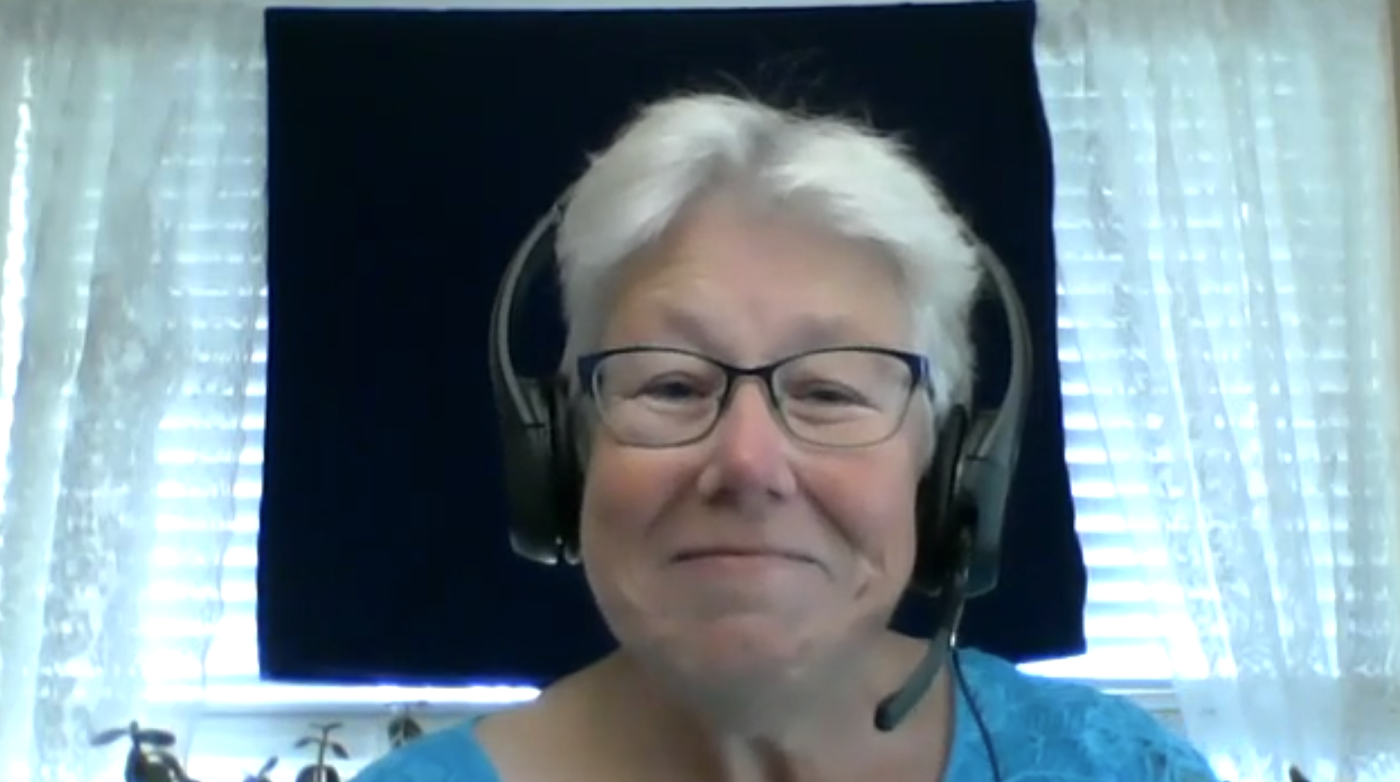Sure. You know, I always say that it always starts at the end. Um, when our son was being confirmed, we were looking for a confirmation project for his class, and we talked to the folks at the cemetery, there's one Jewish cemetery outside of Tacoma, and we ask, "Is there a project there for the kids?" And they said, "No, but does anybody know how to use this thing called a computer?" Um, we're back in the '90s, and, um, we've never really done any recording of our cemetery [on computers] and our records are on three by five cards. And I suggested that I'd be happy to read the cemetery, to do inscriptions of the headstones to create, in those days a book of of who was buried there. And I said if they would be willing to share that information with the library, then that would be a win win. So I was working on that and, um, discovered you really need to know Hebrew. Um, but I had help from the community. I will always be proud of the research I've done is- It's okay- but what will last beyond everything else is that as a result of the research, we discovered that there were nearly 75 graves in the cemetery that over the years had been unmarked. And I was able to identify those names from the records, but there was no headstone there. And so our Tacoma Jewish community raised those funds, and in the fall of 2000 marked those graves. And as Herman Kleiner said, "It was like a scrapbook of our community, a photo album, and there were faces missing. And he said that our God knew who was there. But we needed we needed those for us." Um, and that will always be something that I'm so proud of, that this community did that is going to be there for, I hope, for centuries. Really proud of that. So at that time, as I was working on that, the State Jewish Historical Society was working on a book that became Family of Strangers. And they discovered that no one had really ever written about the Jewish community in Tacoma. And because I was doing some research on those burials, they came to me and we worked in the library. And you know how things start. I was just going to do a little. I was just going to do a little bit of, well, let's look at the High Holidays articles. In September. I was just going to do a little bit of research to help them have a file on Tacoma. And we discovered that quite by accident, the Tacoma Public Library had never started a file on the Jewish community. The building index talked about one synagogue, but there was not-there were files on Methodists and Baptists, but there was just, they never started a file on Tacoma Jews. And it was clearly just an oversight. And I just think that they didn't think about their being Jews in Tacoma. And so I was going to build a file for Tacoma Library, and I was going to help with the book. 20 years later, I was still researching. Um, one really unique advantage I had was that because I worked in the library where the old newspaper microfilms were, I had a very good friend in our Northwest Room special history collection department who allowed me to come in with him at seven in the morning, and we spent two hours in a dark room going through microfilm before the public came in. And that way we weren't taking the reader the machine away from the public. And so I ended up magically discovering that if you want to read about a class of Jewish merchants, their living depended on their ads in the newspaper. And so they would regularly take out newspaper advertising. And because of that, the way publishing works, the regular newspaper advertisers just happened to get social mentions, so if their brother came from Chicago to visit, it'd be in the paper. And if a sister in law came for a birthday, it'd be in the paper. And those tiny little details are what really helped fill together. And then I went on to what became kind of my personal bias is that in order to study our history, you have to look at the women. You can't just look at the men. The only way you can understand the relationships is if you look at the women and the wives and the sisters and how they were connected. And if you have a company known as Feist and Bachrach, you know that either Mr. Feist married a Bachrach, or Mr. Bachrach married a Feist, and you don't know which came first. But those partnerships were usually based on those family relationships. So I kind of got into a pattern of, I needed to do the genealogy in order to figure out the families. And that's when I was able to discover that of- maybe a many surnames in Tacoma of people who were involved in the Jewish community just in the 1800s. There really were clusters of families. There'd be a cluster from Hungaria, there'd be a cluster from Latvia, there'd be a cluster that came through Chicago, um, many Prussians, many Germans, but they were really clusters of families. And it wasn't that just one boy came and decided to live in Tacoma. No, he came because his mom's cousin lived here and gave him a job. Um, so his family connections became a really important part of that. Yeah.
